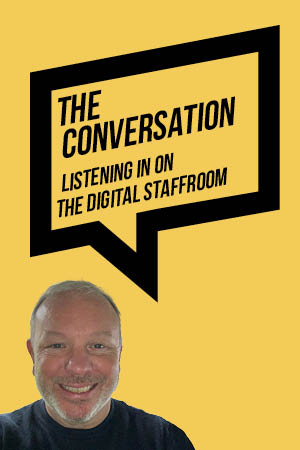Why You Shouldn’t Listen To Behaviour Experts
It is of growing concern that, at a time when educational professionals (in whatever sector) should be united and supportive of each other, the social media conversation seems to be dominated by those who take polarised positions – declaring their ‘camp’ and then be unable to move an inch.
In that context, listening to Simon Currigan and Emma Shackleton on the School Behaviour Secrets podcast was refreshing. The latest episode argues that we should avoid taking behaviour advice at face value, not only because interventions are often focused on too few pupils, but also because teachers too seldom play a part in developing them.
It’s always a privilege to work with great people who bring something to your school, especially with regard to behaviour and strategies to support children. But that advice has to be applied to that setting, that class and those children.
Currigan here discusses an example of working with a particular child with a lot of physical aggression. When the child was observed at play, peers were all quite rough and took part in a lot of play fighting. This observation made clear that individual work might not be the magic wand to addressing the aggression. Instead, efforts were better focused on changing ‘the way the pupils rolled’.
Hence the need to avoid being mesmerised by the allure of a ‘one-size-fits-all’ expert who promises improvements with a spell and the wave of a wand. Ultimately, this will not be effective if the school and the people in it aren’t truly understood.
Fixed positions are seldom are.
Teacher wellbeing: how can schools become more human-centric
A much needed listen especially at this time of year is Gemma Drinkall’s latest Teachers with Boundaries podcast, centred on how schools can become more human-centric. It almost feels like something we shouldn’t need to be reminded of, but in the middle of so many articles and viral social media posts about the teaching recruitment crisis, piled on top of a very real and present leadership crisis, wellbeing remains a critical issue.
Drinkall’s podcasts begins with, I’m sure, a much recognised retort to partners, friends and family when asked why we’re still working at weekends or late into the evening: ’It’s just teaching.’
But accepting this ever-present refrain stops us from changing the tune. Drinkall describes how our human instinct is to fear change, even if the status quo isn’t necessarily proving good for us. She also makes the point, completely relevant to many (including my school where we are all part time teachers), that schools would be more human-centric if they were to match what modern family life is truly like. Fundamentally, she argues, we should move with the times and embrace flexible working.
There’s a useful addendum to the post about not listening to behaviour experts here. Becoming more human-centric must include welcoming experts into our schools, because sometimes only another pair of eyes can lead you to changing the status quo. It’s right that we should expect them to listen to us, but we have to be willing to listen too.
However You Read It: Drop the Ofsted Grades
Finally this week, I read with interest Caroline Derbyshire’s response to the Ofsted report, A Return to Inspection: the story (so far) of previously exempt outstanding schools. The chair of the Headteachers’ Roundtable’s take on it doesn’t fill me with hope that the grade is anything like a true reflection of schools’ performance.
Derbyshire argues that down-graded schools don’t deserve the negative impact that comes from having been left to their own devices for so long, and asked to take a system leadership role in the interim. Now that this role is no longer needed, she argues, neither is the ‘Outstanding’ tier. The winners will continue to ‘dine out’ and the rest to nurse their bitterness – and their schools.
More than a solid argument that grades are meaningless, this is also a powerful blog about the issue of sustainable leadership. We certainly don’t seem to have a human-centric accountability system.








Your thoughts